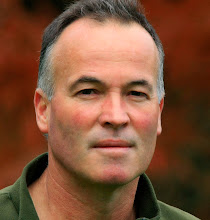This week the 25th annual meeting of the Society for Conservation Biology is being held in Auckland, with the theme “Engaging Society in Conservation”. Over 1300 delegates from around the globe are attending, and our Department of Conservation (DoC) is in the limelight. Not only is it being held up as a world leader in pest eradication and innovative conservation, it is attracting intense sympathy for its scientists who are to be victims of government cutbacks.
This morning on TV we were treated to an interview with conservation scientist Paul Beier, president of the Society. Dr Beier spoke of how New Zealand is considered a world leader in ecological crisis management and how he had visited an impressive offshore island here (Tiritiri Matangi) where pests had been eradicated and birds introduced. Dr Beier stated that introduced mammals were a threat to our indigenous species and their elimination was necessary to preserve biodiversity here, and that in his opinion the loss of “100 DoC scientists” would threaten this outcome.
The concerns of those scientists, and a handful of independent researchers, are available for scrutiny on the website www.1080science.co.nz. To date the efforts of those opposing widespread toxin use have fallen on deaf ears. Indeed our own Parliamentary Commissioner for the Environment (PCE) this year advocated even more use of 1080 poison, especially in NZ’s remote areas. These places are no doubt host to a myriad of undiscovered species (given that only about 50, 000 of an estimated 80, 000 multicellular species in New Zealand have been formally described). A good hard look at the PCE’s justification for this revealed no substance whatsoever, in fact it highlighted the deficiencies in DoC’s methodology (the actions of its so-called scientists) and the ineffectiveness of 1080 in saving anything at all, not even the possum’s favourite trees. The Parliamentary Speaker of the House (paymaster of the PCE) has stated since that the PCE’s assessment was rated only as an opinion.
Other risky long-standing DoC practices include introducing new species to communities with the idea of saving the species (never mind the existing community structure, and the likelihood of introducing diseases) and removing eggs for hand-rearing with subsequent release of naive juveniles (high mortality rates occur during this process, wasting precious genetic resources and creating animal welfare issues). The lack of forethought and monitoring and amount of carnage wrought by DoC’s activities can be seen plainly in an investigation of their newsletters, available on the website www.rarebits.co.nz.
In line with the theme of this week’s conference, a paper to be presented by scientists Boedhihartono and Sayer contends that the most successful conservation efforts are those that involve local stakeholders, especially those fostering the aspirations of people in the poorer rural sectors. Here in New Zealand we have vast potential to use our introduced mammals as resources (commercially, recreationally and as a domestic food source). These opportunities are not sufficiently recognised or fostered here; poison is a favoured pest control tool not just for DoC but also our Animal Health Board (under the guise of controlling Tb) and Regional Councils.
Action from competent conservation biologists, of which there must be hundreds currently in Auckland, is urgently required to displace the unscientific, poorly monitored, rough interference and poisoning mentality that prevails here.
ENDS
To view award winning documentary Poisoning Paradise - Ecocide New Zealand, click here.







yes we have another drop happening here in Golden Bay in July so we have plenty of time to get action happening here and a whole summer to let the tourists know how un-green we are
ReplyDeletewe probably would like to talk with you guys cos i know we have a lot of support amongst this old hippie community and then there's plenty of hunters here too ...watch this space